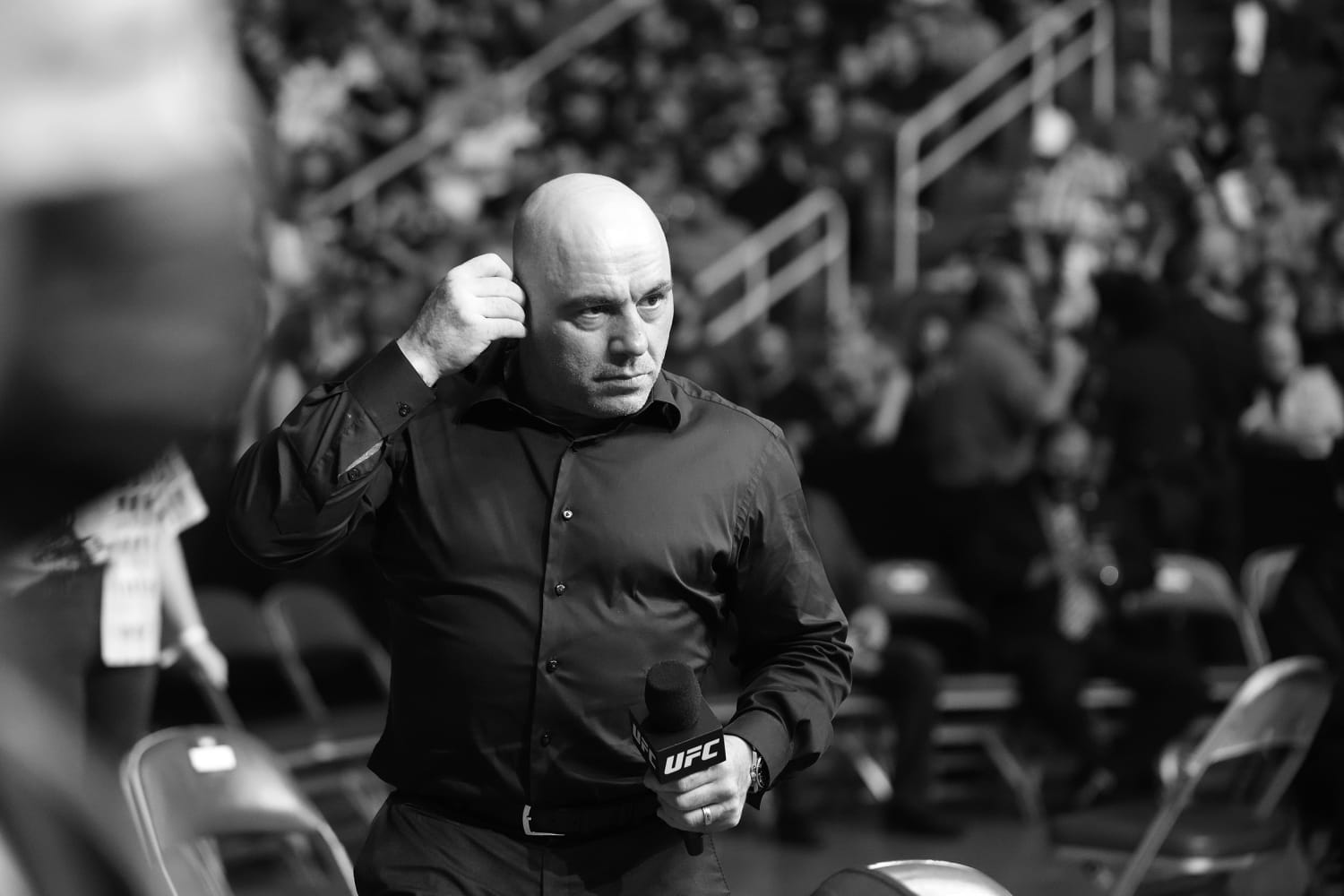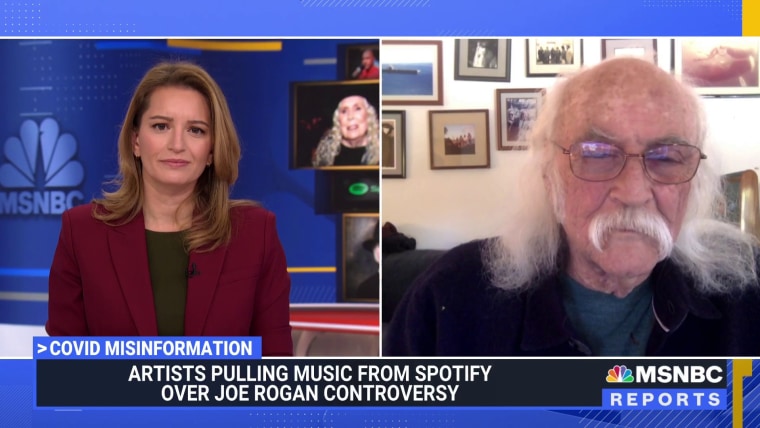After weeks of escalating criticism, Spotify’s billionaire CEO, Daniel Ek, is doing desperate damage control. He introduced a plan Sunday to spend $100 million to license, market and develop “music (artists and songwriters) and audio content from historically marginalized groups.”
Rogan is licensed exclusively to Spotify under a $100 million deal, and he has become notorious for spreading vaccine disinformation.
Ek’s plan is supposed to demonstrate the platform’s commitment to equity and social justice. But instead it underlines how Spotify, and many corporations in general, can ignore claims that it underpays artists and employees for years only to magically find huge sums of money in a PR crisis.
Spotify’s most recent troubles began two weeks ago when rock giant Neil Young announced he was pulling his music from the streaming platform to protest the very popular podcast The Joe Rogan Experience. Rogan is licensed exclusively to Spotify under a $100 million deal, and he has become notorious for spreading vaccine disinformation.
Young’s protest inspired some of his friends and collaborators — including Joni Mitchell, Nils Lofgren, David Crosby, Graham Nash and Stephen Stills — to pull their music as well. India Arie, a younger artist, also withdrew her catalog, citing Rogan’s history of racist comments. Over the weekend, she shared a compilation video of Rogan using the N-word 22 times on his show. The video went viral, and Spotify and Rogan responded by pulling dozens of episodes. Rogan also apologized for his racist language. (And this followed his claim that he was “not trying to promote misinformation” regarding Covid-19.)
This is the context for Ek’s recent statement. He, too, apologized for the racist language, but he said he would not end the deal with Rogan. “Canceling voices is a slippery slope,” he insisted — though it seems like spreading vaccine disinformation is also a slippery slope, as we confront America’s 900,000 Covid deaths. The platform has also (underwhelmingly) promised to add content warnings to vaccine disinformation. Finally, Ek rolled out (with few details) the plan to invest $100 million in content from marginalized creators.
More money for marginalized creators sounds like a good idea. The problem is that existing creators have complained for years that Spotify underpays them, exploiting their labor as Ek and Rogan receive big payouts. Ek is presenting himself as a responsible, socially conscious business leader. But all he’s doing is giving (some) artists some fraction of the money they say he’s bilked them out of via unfair licensing deals.
Spotify’s business model is notoriously exploitive, especially for smaller creators. Some artists have reported being paid between $.003 and $.005 per stream, according to Insider. That would mean you’d need 250 streams to make a dollar, or 25 billion streams to make as much money as Spotify paid Rogan. Spotify’s rates are apparently worse than virtually all other comparable platforms. Apple announced in April that it would pay artists closer to a penny per stream. Napster pays even better, with artists saying they need about 53 streams there to make a dollar, according to The Washington Post.
So why haven’t artists just quit the platform? Many of them can’t because of contractual obligations. The alt rock band Belly, for example, put a “Delete Spotify” banner on its artist page, but because of its contracts, it doesn’t have the ability to remove its music. Older artists like Bob Dylan and Bruce Springsteen have sold their catalogs and don’t have a say in where the music appears.
Artists may also need the income from Spotify, small as it is. Or they may rely on the platform’s curated playlists to get introduced to fans, so they can book live shows (when the pandemic isn’t making those impossible).
In short, Spotify has a huge amount of power in its dealings with individual artists.
This is not a new phenomenon in the music industry. Scholars Matt Stahl and Olufunmilayo Arewa detailed in 2019, along with many other music scholars, how record labels used shoddy and deceptive accounting practices to prevent R&B and soul artists from receiving the royalties they were due. Executives would then sometimes advance the artists money as a “favor.” At the end of their careers, these performers could owe tens of thousands of dollars: Blues icon Muddy Waters owed Chess Records some $50,000 in the ’80s.
Spotify is not advancing this sort of narrative, but you can see the same underlying logic at work. Spotify isn’t compensating artists for the full value of their work, but it is in a position to be generous with the money it has taken from them. Now, it is offering to give back some of that money as a PR move.
Spotify’s CEO, and other Rogan apologists like comedian Jon Stewart, have insisted that defending the podcaster is a matter of free speech. “Don’t censor, engage,” Stewart quipped. But this elides the fact that musicians are already engaging with Rogan, whether they want to or not. Their participation helps bring in the audiences and advertisers that in turn help pay his massive licensing fee. Their music is streaming on the platform that has made him its most high-profile, most public face. Their music — their voice — helps enrich and promote him, even though they don’t want to. How is that free speech?
Musicians don’t want charity. They want to be paid what they’re due and ideally to have some say in how the product of their labor is used. Ek’s condescending promise to marginalized musicians is just the latest example of how much contempt the music industry has for the people who create music. If you care about free speech, you should spare a thought for the people who can’t stop singing for you and for Rogan, no matter how little they are paid.
Source: | This article originally belongs to Nbcnews.com










